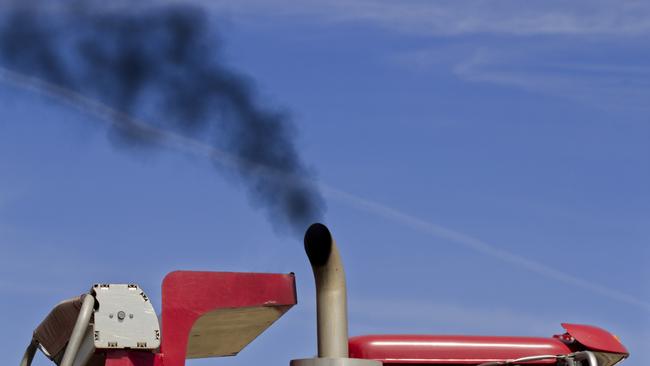Carbon dioxide level highest in three million years, says UN
Carbon dioxide in the atmosphere is at record levels, according to the World Meteorological Organisation.

Carbon dioxide in the atmosphere is at record levels after another year in which there was little sign of a reduction in global emissions, according to the World Meteorological Organisation.
The UN group said in its annual report that concentrations of CO2 in the atmosphere last year hit 407.8 parts per million, only three years after passing a symbolic barrier at 400ppm. The increase last year was similar to that of the year before and, despite efforts to combat emissions, above the average over the decade.
This means that there is more CO2 in the atmosphere than at any time since three million years ago, when sea levels were between 10m and 20m higher and the temperature was 2C to 3C higher. Before the Industrial Revolution, atmospheric CO2 was at 280ppm.
Every year CO2 in the atmosphere fluctuates with the seasons as plants in the northern hemisphere convert it to oxygen in the summer. But the burning of fossil fuels has meant that from year to year there is a clear upward trend.
The continued release of greenhouse gases means that each year is almost by definition a record year, but Petteri Taalas, secretary-general of the WMO, said the rate of increase was still disappointing. “There is no sign of a slowdown, let alone a decline, in greenhouse gases’ concentration in the atmosphere despite all the commitments under the Paris Agreement,” he said. “We need to translate the commitments into action and increase the level of ambition.”
The WMO’s annual report also looks at other gases. Methane, which also increases warming, was up 259 per cent. Nitrous oxide, which is emitted from fertiliser use, was up 123 per cent.
There is a lag in the effects of CO2, which means that even if all fossil fuel burning stopped temperatures would continue to rise for a long time.
Inger Andersen, executive director of the UN environment program, said: “We face a stark choice: set in motion the radical transformations we need now or face the consequences of a planet radically altered by climate change.”
The Times



To join the conversation, please log in. Don't have an account? Register
Join the conversation, you are commenting as Logout